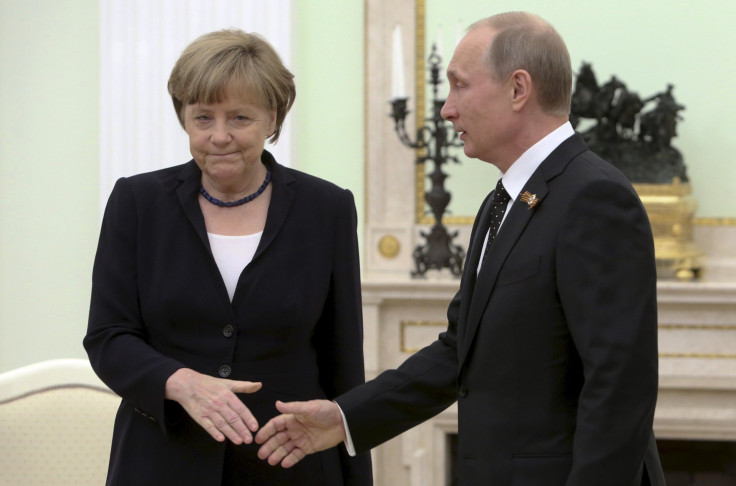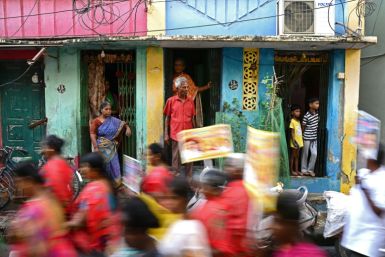Will Germany End Russian Embargo? Berlin Considers Lifting Some Sanctions As EU Deadline Looms

Germany is discussing the possibility of easing some sanctions on Russia, as the European nation looks to warm diplomatic and economic relations with Moscow, according to a new Monday report in German magazine Der Spiegel. The European Union is set to decide whether to renew sanctions on Russia by the end of June, and several nations have voiced opposition to continuing the strict sanctions with their eastern neighbor.
"My approach has always been that sanctions are not an end in themselves. When progress is made on the implementation of the Minsk Protocol, we can also then talk about easing sanctions," German Foreign Minister Frank-Walter Steinmeier said, Der Spiegel reported.
Germany could relax certain initial sanctions on Moscow in exchange for Russia's cooperation on upcoming elections in eastern Ukraine, according to the report. Authorities in Berlin would not change the financial sector penalties, however, or other embargoes that have targeted Russian President Vladimir Putin and his close business allies.
The European Union and the U.S. first issued sanctions on Russia after Russia's annexation of Crimea in March 2014. The embargo has disrupted trade between the EU and Russia, as Moscow used to import many food products from throughout Europe, and many EU countries used Russian oil.
Jean-Claude Juncker, president of the European Commission, has planned a diplomatic visit to Russia, making it the first such visit since the sanctions were issued more than two years ago. The EU is expected to renew sanctions on the energy, defense and financial sectors for at least six months in July, though the visit could help warm relations, according to one European authority.
"A visit by an official of this level always carries a symbolic value. I don't see any reasons why we would need to symbolically demonstrate to Russia that we're seeking contact," Lithuania's foreign minister, Linas Linkevičius, told Reuters.
© Copyright IBTimes 2024. All rights reserved.












